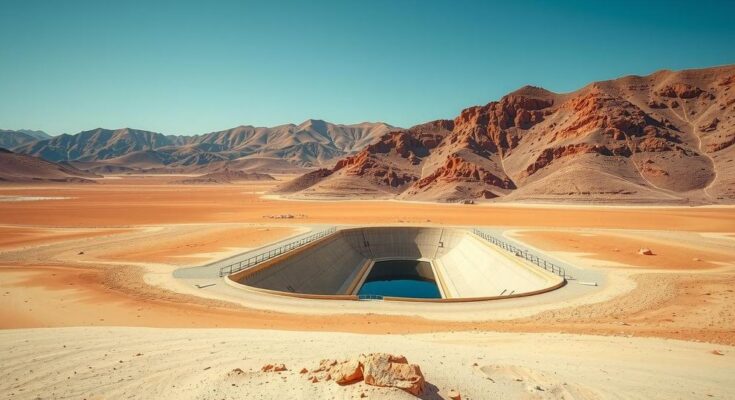Qatar’s Prime Minister warns an attack on Iran’s nuclear facilities would severely compromise the region’s water supply, with Qatar potentially running out in three days. He advocates for a diplomatic solution while emphasizing ongoing security concerns, particularly regarding Iran’s nuclear ambitions.
Qatar’s Prime Minister Sheikh Mohammed bin Abdulrahman bin Jassim Al-Thani has warned that an assault on Iran’s nuclear facilities located along the Gulf coast would result in a significant water crisis for the region. In an interview with Tucker Carlson, a media personality affiliated with former President Donald Trump, the Prime Minister highlighted that a simulated attack revealed the dire consequences: the Gulf waters would become completely contaminated, leading Qatar to deplete its water resources within three days.
Sheikh Mohammed mentioned the enhanced water capacity achieved through the construction of reservoirs, yet he acknowledged that risks persist for all Gulf nations. He resonated the grave implications of such an attack, stating, “No water, no fish, nothing… no life.” His remarks coincided with Trump’s invitation to Iran for nuclear negotiations, emphasizing a preference for a peace agreement versus military intervention.
Qatar, geographically located 190 kilometers south of Iran, primarily depends on desalination for its water supply, a method similarly utilized by other nations in the arid Arabian Peninsula. While Iran operates a nuclear power facility at Bushehr, its uranium enrichment sites remain further inland, raising concerns for nearby countries like Qatar. Sheikh Mohammed articulated that Qatar is not only vigilant regarding military threats but also prioritizes overall security and safety in the region.
The Prime Minister expressed Qatar’s opposition to military action against Iran and its commitment to pursue diplomatic avenues for resolution, indicating that Tehran is open to discussions aimed at enhancing regional relations. He asserted that Iran desires to build constructive relationships with neighboring countries, underscoring their readiness to engage in dialogue that fosters mutual comfort and stability.
The narrative surrounding Iran’s nuclear ambitions has been contentious, with Western nations alleging that Iran is pursuing nuclear weaponry, a claim Iran denies. The 2015 agreement aimed to limit Iran’s nuclear activities in exchange for sanction relief was disrupted when Trump unilaterally withdrew in 2018 during his presidency.
In summary, Sheikh Mohammed bin Abdulrahman bin Jassim Al-Thani articulates a significant risk posed by a potential attack on Iran’s nuclear facilities, emphasizing the severe implications for water security across the region. He advocates for diplomatic engagement over military action, highlighting Tehran’s willingness to collaborate for improved regional relationships. The discourse surrounding Iran’s nuclear intentions remains a contentious issue, underscoring the complexities facing Gulf nations.
Original Source: www.iosconews.com




